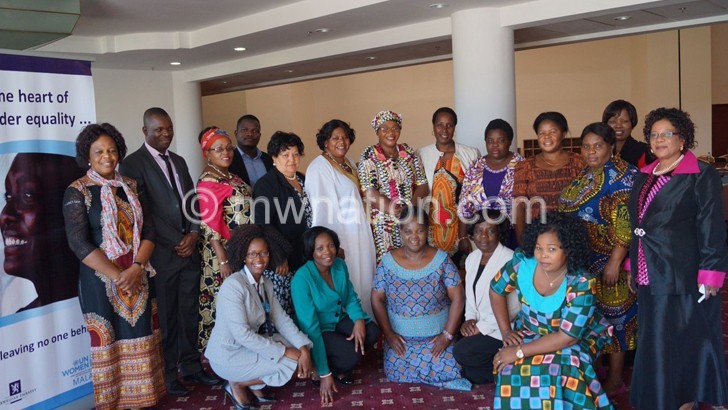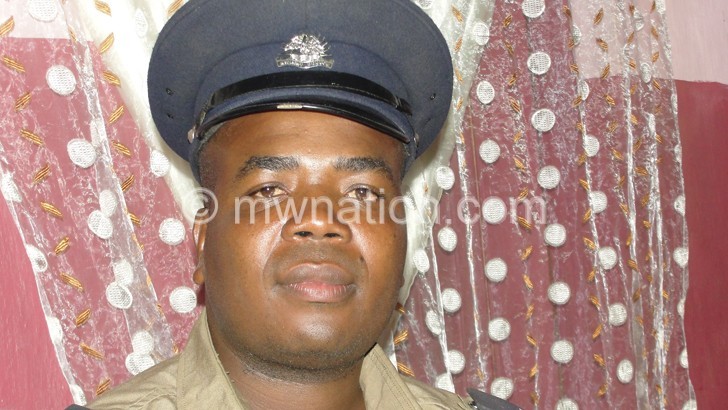Malawi govt proposes 28 more
Parliament, currently with 193 legislators, could have 28 more members of Parliament (MPs) if a Malawi Law Commission recommendation that each district should have an automatic woman MP is adopted.
In the proposal, contained in a presentation by the Ministry of Justice and Constitutional Affairs at the African Union Commission meeting in Niger made by chief State advocate Pacharo Kayira, the seat for the female district MP will be standalone to the existing constituencies where men and women will be competing for their parliamentary seats.
The proposition, according to government, seeks to ensure equal participation of men and women in public political office.

Minister of Justice and Constitutional Affairs Samuel Tembenu is today expected to present a report on the recommendation to Parliament for debate.
The recommendation is among the several made by the Special Law Commission on the Review of the Electoral Laws, which was chaired by Malawi Supreme Court of Appeal judge Anthony Kamanga.
The commission recommended that all the 28 administrative districts be treated as electoral constituencies where only women shall be contesting as parliamentary candidates.
The adoption of the recommendation will mean that the number of MPs is likely to rise in the House from the current 193 which has been maintained since 1999 from 177 when the country had the first post-independence multiparty elections.
However, the development will also come at a time when there have been concerns from some commentators that the number of current MPs is already blotted relative to the country’s economy.
But constitutional law expert Edge Kanyongolo, while describing the proposal as radical, doubted the possibility of the proposition immediately getting widespread acceptance by the population.
He observed that Malawians were slower in embracing proposals that seem to be completely different from what they have known for some time.
“Let us not forget that the current arrangement has been there for more than 20 years, so I anticipate problems with respect to the Malawian society, which is largely conservative, accepting such a radical proposal,” said Kanyongolo, an associate professor of law at Chancellor College, a constituent college of the University of Malawi.
However, he said he did not look at the cost, if the number of MPs increases, as a justifiable reason to oppose the proposal.
Said Kanyongolo: “I think we have to weigh what will we benefit from that.”
Political scientist Nandini Patel said accepting the views to adopt a proportional representation system was welcome to enhance women political representation which drastically dropped.
She said: “It is a very big task which may require constitutional amendments, but it is something very revolutionary and very tangible. We have to do what it takes by respecting the principle of fair representation and participation.”
Malawi Congress Party (MCP) director of elections Maxwell Thyolera said while different stakeholders have urged political parties to ensure that a good number of women are in politics, the proposal requires a lot to be done.
He said: “It is our wish to see the Gender Equality Act, which talks about 40-60 representation, being achieved by having each district reserving a seat to be competed for by women only.
“However, the mandate of coming up with numbers of constituencies is for the Malawi Electorate Commission [MEC] so we are wondering whether the recommendation means the current number of constituencies will be reduced or there will be an addition of the 28 seats.”
The number of women MPs has been rising since 1994 up to the level of having the country’s first woman Vice-President Joyce Banda in 2009 who became President in 2012 in line with constitutional order following the death of President Bingu wa Mutharika.
However, this encouraging movement collapsed in 2014 when Banda lost the elections by coming third in the presidential race while the fraction of women MPs fell by almost quarter.
According to a February 2016 report by Overseas Development Institute (ODI) authored by, among others, Chancellor College law lecturer Dr Ngeyi Ruth Kanyongolo, multiparty politics has improved women’s political representation although there has been a slow but steady increase in the number of women MPs in Parliament.
“From just 10 after the first multiparty election in 1994 [5.6 percent of the total] to a peak of 43 in 2009 [22.3 percent],” reads part of the report.
However, after the 2014 Tripartite Elections the number plunged from 43 to 32, representing 16.6 percent of the total parliamentarians.





